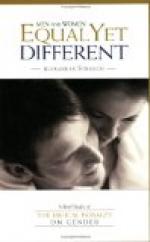There were, however, in all ages, exceptions. Women, yielding to the God-given yearning after higher and better things than idle frivolities, and longing just as ardently for love and happiness in their married homes, sought to work out life’s problem differently, and went to work as rational creatures. Breaking through or over the obstacles which debarred them from enjoying or making use of the sources of information open to the opposite sex, they strove to cultivate their minds and store them with useful knowledge, that they might indeed be helpmeets for their husbands, and so not only win, but by true worth retain, their love.
Then those who had hitherto sneered at woman’s incapacity for intellectual attainments, or lectured her roundly for frivolity, heartlessness, and deception, sneered all the more at her presumption in fancying her heart, or head either, required any other cultivation than man, in his wisdom, saw fitting. Any thing at all likely to elevate woman to her proper place of equality with her husband, must be put down at once and forever, if possible. But, notwithstanding all the pains taken to place women in an inferior position, and keep them there, they have, in many instances, despite the sneers and persecutions of the opposite sex, proved their aptitude in acquiring knowledge; and, when placed in positions to call forth such powers, have manifested a judicious tact in the government of nations or generalship of armies, quite equal to men, with all their vaunted superiority. Nor did those women who thus distinguished themselves, or those who in private life became proficients in the various branches of science or in music, poetry or the languages, necessarily neglect their homes and families in consequence. Experience, in our own times, proves exactly the reverse. Dereliction of duty with regard to home duties results much more frequently from devotion to fashionable pleasures—considered quite allowable and womanly—than from the pursuit of literature.




